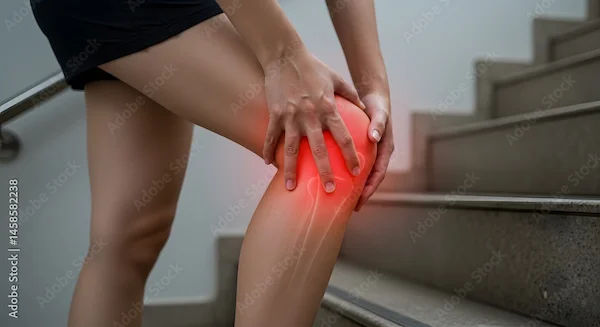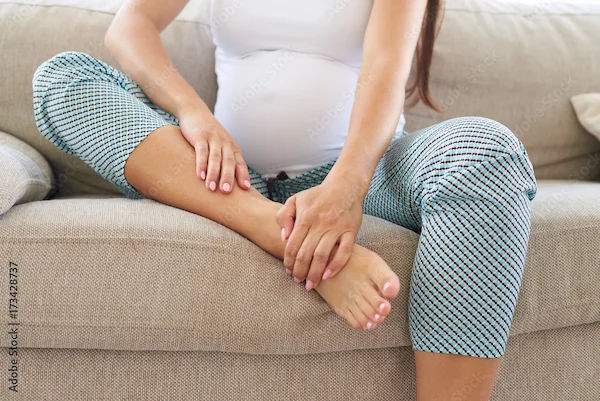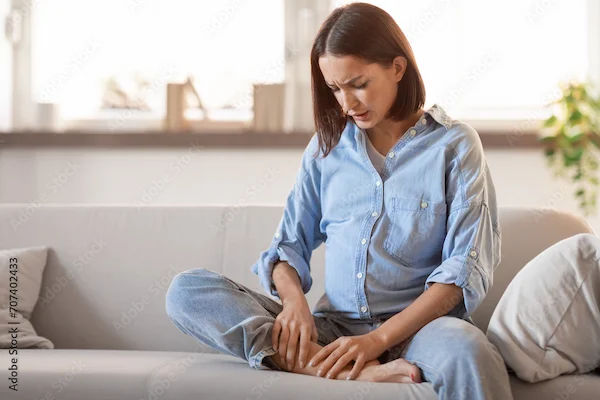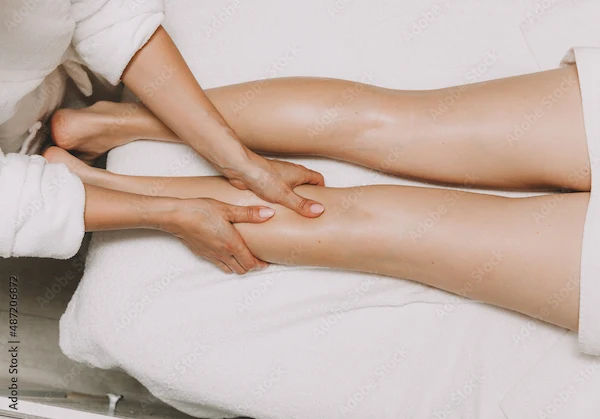How to Reduce Swelling In Legs?
Suffering from swollen legs? Discover effective home remedies, lifestyle adjustments, and exercises to reduce leg swelling and find relief.

Written by Dr.Sonia Bhatt
Last updated on 11th Jul, 2025

Introduction
Swelling in the legs, also known as edema, is a common condition that many people experience at some point in their lives. It occurs when excess fluid builds up in the tissues, leading to puffiness, discomfort, and sometimes pain. While mild swelling may not always be a cause for concern, persistent or severe swelling could indicate an underlying health issue.
If you're dealing with swollen legs, don’t worry—there are several simple and effective ways to reduce the swelling and improve your comfort. In this article, we’ll explore the causes, symptoms, and practical tips to manage and prevent leg swelling.
What Causes Swelling in the Legs?
Leg swelling can happen for various reasons, including:
Prolonged Sitting or Standing: Staying in one position for too long can cause fluid to pool in the legs.
Injury or Surgery: Swelling is a natural response to trauma or surgery in the legs.
Pregnancy: Hormonal changes and increased pressure on blood vessels can lead to swelling.
Venous Insufficiency: Weak or damaged veins struggle to return blood to the heart, causing fluid buildup.
Heart, Kidney, or Liver Disease: These conditions can affect fluid balance in the body.
Medications: Some drugs, like blood pressure medications or steroids, may cause swelling.
Lymphedema: A blockage in the lymphatic system prevents proper fluid drainage.
Symptoms of Leg Swelling
Swelling in the legs can present in different ways, such as:
Puffiness or tightness in the legs, ankles, or feet
Skin that feels stretched or shiny
Discomfort or heaviness in the legs
Indentations (pitting) when you press on the swollen area
Reduced flexibility in the ankles
If swelling is sudden, severe, or accompanied by pain, shortness of breath, or chest pain, seek medical attention immediately, as it could indicate a serious condition like a blood clot.
Consult Top Physician for Personalized Tips
How to Reduce Swelling in Legs?
Here are some effective ways to manage and reduce leg swelling:
Elevate Your Legs: Lie down and prop your legs above heart level for 15-30 minutes, 3-4 times daily to help fluid drain.
Stay Active and Exercise Regularly: Gentle movement improves circulation; avoid prolonged sitting or standing by taking breaks to stretch.
Wear Compression Stockings: These apply gentle pressure to prevent fluid buildup and are helpful for long periods of sitting or standing.
Reduce Salt Intake: Limit processed and salty foods as excess salt causes water retention, worsening swelling.
Stay Hydrated: Drink 8-10 glasses of water daily to help flush out excess sodium and toxins.
Massage Your Legs: Gently massage legs upward to encourage fluid drainage, avoiding massage with varicose veins or severe pain.
Apply Cold Compresses: For swelling due to injury, a cold pack wrapped in cloth can reduce inflammation.
Avoid Tight Clothing: Opt for loose, comfortable clothing to prevent restricted blood flow that can worsen swelling.
Maintain a Healthy Weight: A balanced diet and regular exercise can help manage weight and reduce pressure on veins and circulation.
Check Your Medications: Consult your doctor if you suspect medication is causing swelling; they may adjust dosage or suggest alternatives.
When to See a Doctor?
While mild swelling can often be managed at home, you should seek medical advice if:
✔ Swelling is sudden, severe, or only in one leg (could indicate a blood clot).
✔ You experience chest pain, difficulty breathing, or dizziness.
✔ The swelling doesn’t improve with home remedies.
✔ You notice redness, warmth, or pain in the swollen area.
If you're concerned about persistent leg swelling, Apollo 24|7 offers expert consultations and diagnostic tests to help identify the cause and provide the right treatment. You can easily book an appointment online for personalized care.
Conclusion
Leg swelling can be uncomfortable, but with the right care, you can manage it effectively. Simple lifestyle changes like staying active, elevating your legs, and reducing salt intake can make a big difference. However, if swelling persists or worsens, don’t hesitate to consult a doctor for proper evaluation. Need expert advice? Book a consultation with Apollo 24|7 today for personalized care and solutions.
Consult Top Physician
Consult Top Physician for Personalized Tips

Dr. Lakshmi Sanjitha Kakani
General Physician/ Internal Medicine Specialist
6 Years • MBBS, MD (General Medicine)
Visakhapatnam
Apollo 24|7 Clinic - Andhra Pradesh, Visakhapatnam

Dr. Syed Yaseen Ahmed
General Practitioner
7 Years • MBBS
Hyderabad
Apollo 24|7 Clinic, Hyderabad

Dr. Lakshmi Sindhura Kakani
General Physician/ Internal Medicine Specialist
10 Years • MBBS, MD (General medicine)
Visakhapatnam
Apollo 24|7 Clinic - Andhra Pradesh, Visakhapatnam

Dr. Jawwad Mohammed Kaleem
General Practitioner
4 Years • MBBS
Hyderabad
Apollo 24|7 Clinic, Hyderabad

Dr. Mohammed Huzef Ul Arifeen
General Practitioner
3 Years • MBBS
Hyderabad
Apollo 24|7 Clinic - Telangana, Hyderabad
Consult Top Physician

Dr. Lakshmi Sanjitha Kakani
General Physician/ Internal Medicine Specialist
6 Years • MBBS, MD (General Medicine)
Visakhapatnam
Apollo 24|7 Clinic - Andhra Pradesh, Visakhapatnam

Dr. Syed Yaseen Ahmed
General Practitioner
7 Years • MBBS
Hyderabad
Apollo 24|7 Clinic, Hyderabad

Dr. Lakshmi Sindhura Kakani
General Physician/ Internal Medicine Specialist
10 Years • MBBS, MD (General medicine)
Visakhapatnam
Apollo 24|7 Clinic - Andhra Pradesh, Visakhapatnam

Dr. Jawwad Mohammed Kaleem
General Practitioner
4 Years • MBBS
Hyderabad
Apollo 24|7 Clinic, Hyderabad

Dr. Mohammed Huzef Ul Arifeen
General Practitioner
3 Years • MBBS
Hyderabad
Apollo 24|7 Clinic - Telangana, Hyderabad
.webp)


